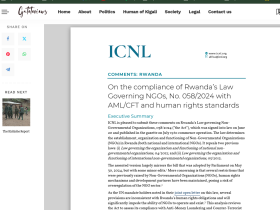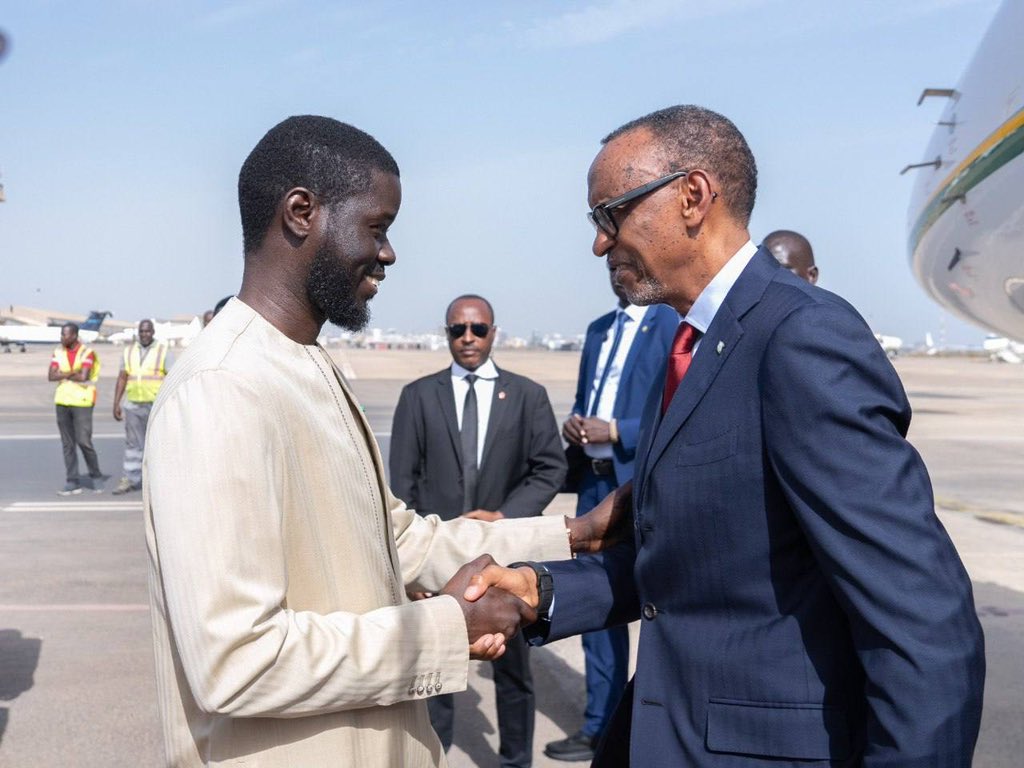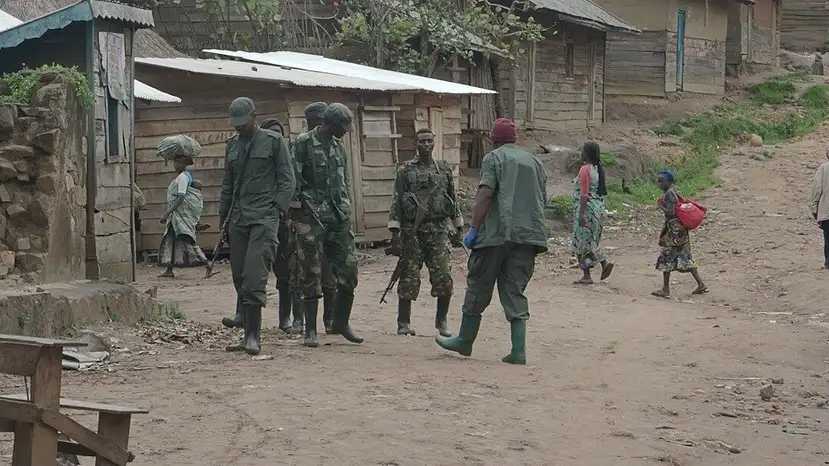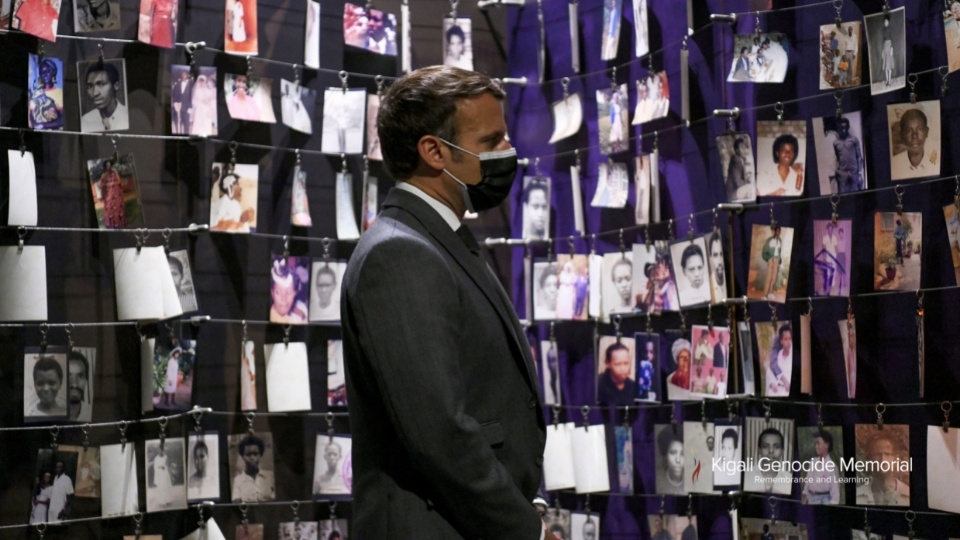This is a letter to my friend, colleague and fellow blogger from South Sudan: Dr. Remember Miamingi. On his blog[1] he has been harsh on Salva Kiir’s leadership and South Sudan’s post-independence economic performance. It is also a tribute to Paul Kagame.
Dear brother Miamingi,
As a parting short to our daily, heated debates; this is to you, my way of saying goodbye. As my time here draws to an end, I will miss our moments, but I long to be home in Rwanda; To cite Samuel Beckett: ‘Perhaps my best days are gone, but I wouldn’t want them back; not with the fire in me now…’ This letter is written with massive love. For you, but also for your country South Sudan and your people; my people…
Before I get to the reason I am writing this, I would like to share my experience, in the aftermath of the genocide against the Tutsi. An experience, which I share with many Rwandans…
I, and many other Tutsis returned in Rwanda immediately after the genocide. I personally had lived in exile for 12 years, which was my entire life. Both my parents where also born and raised in exile.
On the one hand, my immediate family had evolved within the francophone central Africa, in a civic context of what Thomas Sankara used to describe as ‘reactionary politics.’ In the Mobutu’s Zaire, trifles such as extravagant dressing and French accent were given prime relevance. Mobutu himself trailed folklore of outfits (A hat, a cane, a leopard skin jacket, etc., and spoke impeccable French)
A political environment of deep ideological bankruptcy: where substance was replaced with façade nonsense; sycophancy, and a plethora of cosmetics; literally. All was done for appearance; to look French. – Up to this day, Congolese men still use facial chemicals to bleach their skin and women, plastic hair, etc.
The constant use of fakes was rampant – and still is – widespread among the youth around Africa. In an effort to draw closer to the western; a fake accent, a fake brand of items, the ever-present dream of a breakthrough to the west, etc.
Make no mistake, all Rwandans had assimilated to the Zairian community and had been infected. The only difference was – and still is – how deep had each one gotten himself imbedded, and how permeable was he to unlearning and relearning, as we returned home.
On the other hand, we were quickly confronted with a group coming from the east of Africa, and particularly from Uganda: they were deeply nepotistic, with a touch of arrogance for holding power – most of the senior ranking military men of the early hour had served in the Ugandan Army, which was the pillar upon which the RPF was founded.
In Rwanda we found Hutus, animated by the thirty years of politics of Tutsi prejudice, and whom, were disquiet with the sudden turn of events. They had relatives in exile; they felt vanquished and humiliated by the deeds of their keen or tribesmen (for lack of a better word).
Their anxiety was real, at the contact with many first time experiences. In the previous thirty years or so, they had never seen a confident, arrogant and particularly English speaking Tutsis, freely walking around the streets.
This evoked for them, what the extremist Hutus had warned them of; that Tutsis would domineer on them if they were allowed back in the country. So they didn’t know whether to embrace or undermine the new comers. They had little choice in any event…
But some were also excited at the new change; particularly some among those from the south and southeast, who had been sidelined by the oligarchy of Habyarimana and his entourage. They thought maybe, this opens new perspectives. But it was too good to be true, for they also knew, oh too well, the miserable life that Tutsis had lived under Habyarimana’s ‘all Hutu reign’ and were getting ready to go through the same.
Then were the Tutsi survivals, who bore deep hatred against their Hutu neighbours, who had looked by as they were being hunted down and killed. They were excited to reunite with their brothers from abroad. Now was their time, they felt. Some even hoped that their ‘brothers’ would avenge them, etc. Within this climate, hugs and festivities of reunion, quickly dissipated to give way to mutual discomfort with one another.
First, between the ‘Francophones and Anglophones’: though it was never documented, I think the francophones had had more chances to go to school while in exile, than the anglophones. But the anglophones were more civically aware, had stronger positions in the army, and with cronyism as the keyword, may have used that to their advantage in securing positions, seen as envious to the francophones.
The francophones on the other hand, with typical ‘reactionary politics’ described above, resorted in complaining, and – believe it or not – started making calls, three years after the genocide, for ‘freedom of expression, open democracy, and any other abstract concept they had read at the ‘Lovanium’ in Zaire or at the ‘Universite du Burundi’.
This irritated those who saw them as complainers, and made no efforts to integrate. While the francophones learned English with haste, their brothers made no effort to learn French. In fact, the role played by the French government in the genocide made them repulsed anything French-sounding. So one group continued to use English in office, sometime even luganda, while others would use French, and sometimes lingala.
The Tutsi survivors, who hoped for revenge, were soon disillusioned, when the Gacacas were introduced with the motto: ‘less retribution, more reconciliation’; and the death penalty abolished. It looked like another implosion was in the making; hence Rwanda’s apprentice apostles of doom all around the world – till to date.
Like the old African proverb goes: ‘no matter how long the night has been, the sun will rise’. Brother Miamingi, then came Paul Kagame and the RPF.
It is not typical of me to make disclaimers in my own writings, but I can swear to you, that I am not a formal member of the RPF. Yes, every Tutsi from the Diaspora is a natural member of the RPF, but it remains informal. Put differently: I am as much a member of the RPF and a fan of Kagame, as a black South African of my age is of the ANC and Mandela, or a black Sudanese of the SPLA/SPLM and Garang.
When the RPF was being formed, it was entrenched in grand ideals. ‘The eight pillars of the RPF.’ But there was nothing particular about these ideals. They are not different from the ideals of the NRM in Uganda; the SPLA/SPLM in South Sudan, or the ANC in South Africa.
Nothing set them aside from just about any ideals of a centrist political party with an agenda to become a democratic welfare state on the one hand, and an open market on the other. So the ideals take about a third of the credit. The other third goes to the RPF’s core team, while the other third goes to Kagame as an individual.
When Kagame came in. he was ahead of his time, at least by a generation. I believe military training had shaped his discipline and character, but his integrity was a choice, inherent to him as a person. The fact that his wife had come from Burundi, got him friends on both linguistic sides.
He marginalised differences, paid little allegiance to that sense of ‘us against them.’ In fact, the man had no friends; still has no known friend in Rwanda – or enemies, he was ready to work with whoever was ready. He did not favour his colleagues from Uganda, nor did he make friends with relatives on his wife’s side, unlike his predecessor Habyarimana. In fact, the man has no known friends in the affective sense of the word. He never indulges in mundane relations. He made strategic alliances with Americans, British, with whom he never hesitated to disagree on principles, such as the DRC issue.
He locked up his relatives and brothers in arms who attempted to usurp power. Now, ironically, some of them have become his bitter critics (see in loving memory of Hon. Inyumba Aloysie on this blog)
But they didn’t make it easy for him; as his methods were seen as restraining. He was fiercely fought; especially by the academia and other complacent intellectuals: ‘the reactionaries’. With typical stagnation of mind, they found him unorthodox, eccentric. – By the way I hope you stop academic life before it is too late…
As if to console themselves, their affectionate line was: ‘but Mr. vice-president (at the time), where did you go to school? They frequently asked, in reference to his lack of university training. But he did not take offence; he simply replied: ‘wisdom and insanity alike, are true for intellectuals as they are for the erudite…’. At some point, both the question and the answer became quiet catchy in Kigali.
When, as expected, French and English were made compulsory for students at prep-year of university. Kagame himself took intensive French classes. The Anglophones oligarchs, who felt rather contempt for french, thought they were exempted from making the effort to learn French. They told their children to snub it, which they did in a strike at the university. It is hard to tell whether it was the act of striking, or the snubbing of French that infuriated the government, but all striking first year students were permanently dismissed.
Then he did what only Sankara had done before him – for the latter, to his peril; he publicly stood up against the French. While attending one of the infamous France-Afrique meetings in Paris, African presidents were asked to denounce America and Britain’s intervention in Afghanistan. All agreed except him. At the end of the meeting, emulating Sankara, almost three decades before him, he held a press conference, while he was still on French soil and told journalists that indeed he thought it was justifiable for a nation to protect its national security interests, distances away from its borders; perhaps had he in mind his subsequent campaign into Zaire to oust Mobutu.
Telling off the French like that, sent a sign to the world that Kagame was not a man to be scorned. Soon after, he would sever all political ties with the French government, following the indictments by a French judge (Brugriere J) of Kagame and his direct associates, accusing them of downing the plane of former president Habyarimana. These allegations have since been reversed by Brugriere’s successor; (Trevidic J).
In my opinion, those two events are part of what got the Rwandan francophone intelligencia off Kagame’s back; A man who can hold his head high to the ‘metropole’ and survive it, is not to be trifled with…
This is not to say he does not make mistakes; there are probably people in the government who enriched themselves – unduly, others committed crimes and got away; Some could have been wrongly accused and jail, while others decided to go back to exile, at least for a few more years; etc. But there was a genuine will to tramp on these gaps and safety nets were laid for those who fell through the cracks…
On a personal level, he has led the country with a fist and his methods can be military sometimes; the overnight shift from French to English as the language of instruction, is one example. Besides, he is a lousy diplomat; He has made some public statements that have comeback to hunt us as a nation. Usually he is in a good mood. Then he is a charming, charismatic and inspirational leader. Every now and then he gets angry, and, oh my God! All the politics go outta window. I have a reached a point where I can read his temper and start praying; ‘What is he going to say again?’
Forces attempted to destabilise him but he was powerful. Unlike Mandela, he disciplined his lieutenants and kept his party relatively off graft; unlike Sankara, he covered his back, brought his ideas to fruition – he lived!
But he knew how to woo allies, both in the country and outside. The youth revere him, while the old look at him with both melancholy and admiration. Admiration because he reminds them of someone – Sankara – who died young; melancholy because they realise how he has succeeded where they failed.
Why am I writing you this letter again? Yes: I am writing you this to share the Rwandan story of reconstruction, characterised by internal mistrusts, intrigues, tensions and hope.
I wish you not to make the mistakes that the Rwandan intellectuals made. As a Rwandan, I understand your discomfort, your anxiety and your fear. As a minority being discriminated against I understand your disbelief in the system. But I would like to remind you that when you were fighting the Sudan, your fears were similar, if not identical to those of as today. The answer therefore, is not in waging war, but in consolidating peace.
Be that person, which you already are, the one looking ahead of his time. I exhort you to empower the current system, embrace and advise it. Gradually occasioning change from within. No one knows what abrupt change may bring; alas! The Arab spring is a proof of that.
In your latest article you made a mediocre portrait of your current president Salva Kiir and requested that he resigns. Knowing you, I have no doubt it is all true. So I am not asking you to bend the truth or condone failure. What I am asking you is to look again, find that entry point that seems oblivious to everyone else. It is easy to point out to mistakes in your country and in Africa at large; I mean; people are poor, untreated and underfed. Insecurity is rampant and economic growth is slow to pick up. Leave that to NGOs trying to raise money. You are not a whistleblower or a watchdog; you are an agent of change!
This is a man who has been charged with mitigating the many challenges facing your embryonic and fledgling nation, while facing pressures from all over the world. So critics who point out to his mistakes are not what he lacks. Nor does he lack praise singers and sycophants; he appoints people everyday for that.
He needs a transformer, a fixer. Go to him and tell him that you want to contribute; that you want to work. Spend your time thinking about how you can take that corrupt, nepotistic and chaotic team and make it better. With time, it will become something beautiful; a land where you want your son to live…
We your fellow Africans are behind you. I know you want to come to Kigali and learn about Kagame’s leadership. Do that any time; you have another home here!
Until we meet again, a lutta continua.
Your Rwandan brother,
Gatete


















Leave a Reply